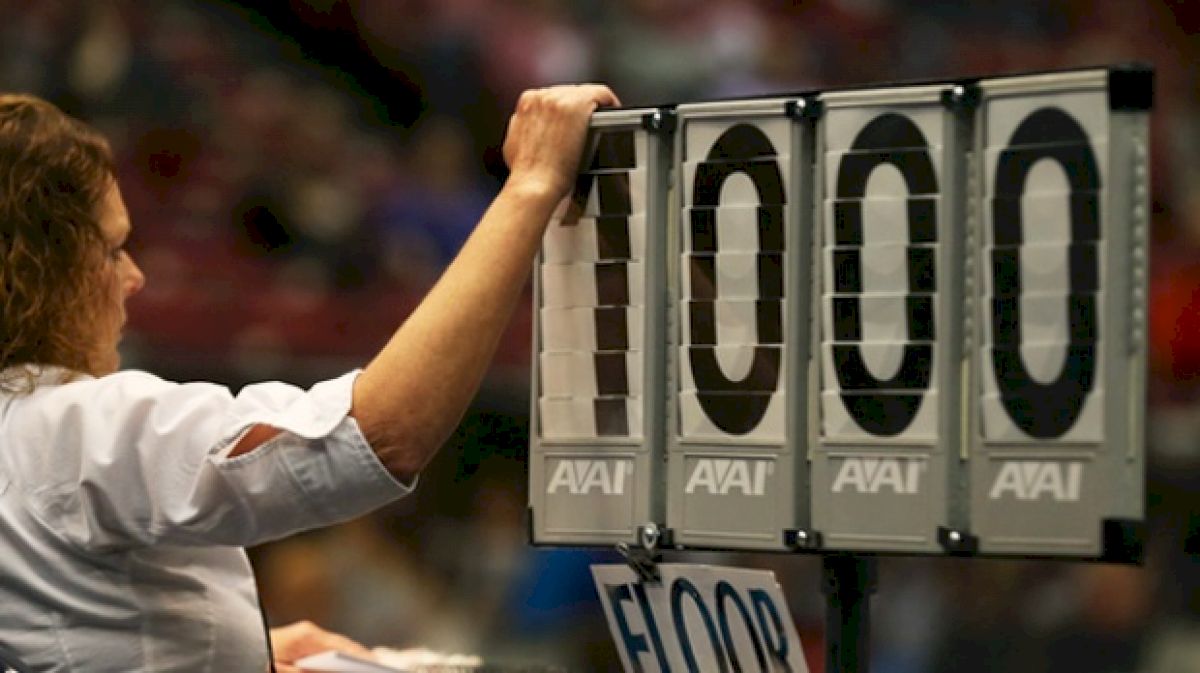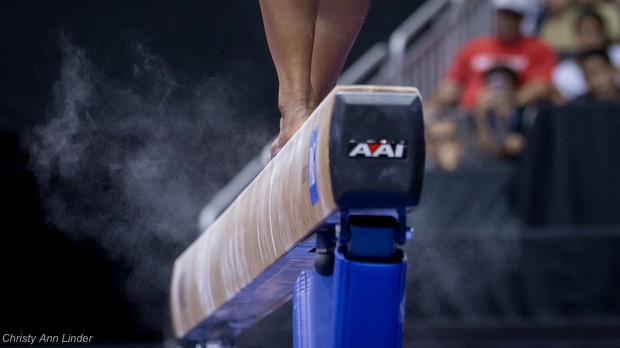Seven Judges From 2014 World Championships Receive Warnings From FIG
Seven Judges From 2014 World Championships Receive Warnings From FIG
Seven judges from the 2014 World Championships in Nanning, China have been given warnings by the FIG Disciplinary Commission for scoring irregularties duri

Seven judges from the 2014 World Championships in Nanning, China have been given warnings by the FIG Disciplinary Commission for scoring irregularties during the event, according to a press release from FIG.
After every World Championships, FIG performs a “deep analysis of the scores given by each judge in order to assure that the results were in compatibility with the current code of points,” which recently brought about disciplinarily proceedings for 14 judges. During September, several hearings were held at the FIG Headquarters in Lausanne (SUI), and seven of the cases were dismissed, leaving seven judges with official “warnings.” Five of the judges were from the Men’s Artistic Gymnastics competition, and two from Women’s. These judges have been urged to “pay closer attention” in future competitions, and it is unclear if there is any real reprimand for the warning.
In order to prevent this type of issue in the future, FIG will be putting more emphasis on properly training judges as well as strengthening the scoring analysis system.

Arguably, if scoring bias and improper judging has been uncovered at one of the most prestigious events in world, this same issue is likely found in various other competitions as well. It brings to light an issue that often jeopardizes this incredibly subjective sport.
In gymnastics, the judges hold ultimate power over the athlete’s success (scoring wise), which for many reasons is a necessary and even positive component of the sport. Lately, so much emphasis has been placed on the difficulty score, which is an objective number based solely on the skills the athletes perform. Many people wish there would be a return to highlighting the beautiful side of the sport—after all, it is called artistic gymnastics.
Having judges allows for true artistry and execution to be based on more than just a checklist of required elements. The same exact routine could be performed by two different athletes, but if one performs the skills with cleaner form, more precise lines, better landings, etc., he/she has the opportunity to earn a higher score. But even in the judgement of execution, there are exact deductions and guidelines that judges follow in order to properly evaluate a routine. The system is based on human judgement, so there is bound to be inevitable error—but does it happen too often? Where is the line drawn when it becomes intentional?
College gymnastics is a place where the judging issue has caused much controversy. When universities develop very noteworthy reputations for incredible gymnastics, it has been argued by many that this leads to bias in the evaluation of routines. With the majority of scores being given within about a four tenth margin, it is often difficult to differentiate between routines. With this, do we see the accuracy of the judging suffer? Additionally, is it possible that two gymnasts could perform the exact same routine with the exact same difficulty, but wearing different leotards, and be given different scores? Some would say yes.
It is vital to recognize that many judges may be sincerely unbiased in their approach, and would never attempt to skew any scores for a certain country, school, gym, etc. Many of the “errors” in judging that gymnast’s experience are likely unintentional. But in a sport where the subjectivity of the system can infect the beauty of what’s been done, and on the heels of the news from 2014 World Championships, perhaps a deep analysis of judging for all levels could be beneficial to ensure fairness and justice for gymnasts across the globe.
Related:
2015 World Championships Coverage
After every World Championships, FIG performs a “deep analysis of the scores given by each judge in order to assure that the results were in compatibility with the current code of points,” which recently brought about disciplinarily proceedings for 14 judges. During September, several hearings were held at the FIG Headquarters in Lausanne (SUI), and seven of the cases were dismissed, leaving seven judges with official “warnings.” Five of the judges were from the Men’s Artistic Gymnastics competition, and two from Women’s. These judges have been urged to “pay closer attention” in future competitions, and it is unclear if there is any real reprimand for the warning.
In order to prevent this type of issue in the future, FIG will be putting more emphasis on properly training judges as well as strengthening the scoring analysis system.

Arguably, if scoring bias and improper judging has been uncovered at one of the most prestigious events in world, this same issue is likely found in various other competitions as well. It brings to light an issue that often jeopardizes this incredibly subjective sport.
In gymnastics, the judges hold ultimate power over the athlete’s success (scoring wise), which for many reasons is a necessary and even positive component of the sport. Lately, so much emphasis has been placed on the difficulty score, which is an objective number based solely on the skills the athletes perform. Many people wish there would be a return to highlighting the beautiful side of the sport—after all, it is called artistic gymnastics.
Having judges allows for true artistry and execution to be based on more than just a checklist of required elements. The same exact routine could be performed by two different athletes, but if one performs the skills with cleaner form, more precise lines, better landings, etc., he/she has the opportunity to earn a higher score. But even in the judgement of execution, there are exact deductions and guidelines that judges follow in order to properly evaluate a routine. The system is based on human judgement, so there is bound to be inevitable error—but does it happen too often? Where is the line drawn when it becomes intentional?
College gymnastics is a place where the judging issue has caused much controversy. When universities develop very noteworthy reputations for incredible gymnastics, it has been argued by many that this leads to bias in the evaluation of routines. With the majority of scores being given within about a four tenth margin, it is often difficult to differentiate between routines. With this, do we see the accuracy of the judging suffer? Additionally, is it possible that two gymnasts could perform the exact same routine with the exact same difficulty, but wearing different leotards, and be given different scores? Some would say yes.
It is vital to recognize that many judges may be sincerely unbiased in their approach, and would never attempt to skew any scores for a certain country, school, gym, etc. Many of the “errors” in judging that gymnast’s experience are likely unintentional. But in a sport where the subjectivity of the system can infect the beauty of what’s been done, and on the heels of the news from 2014 World Championships, perhaps a deep analysis of judging for all levels could be beneficial to ensure fairness and justice for gymnasts across the globe.
Related:
2015 World Championships Coverage